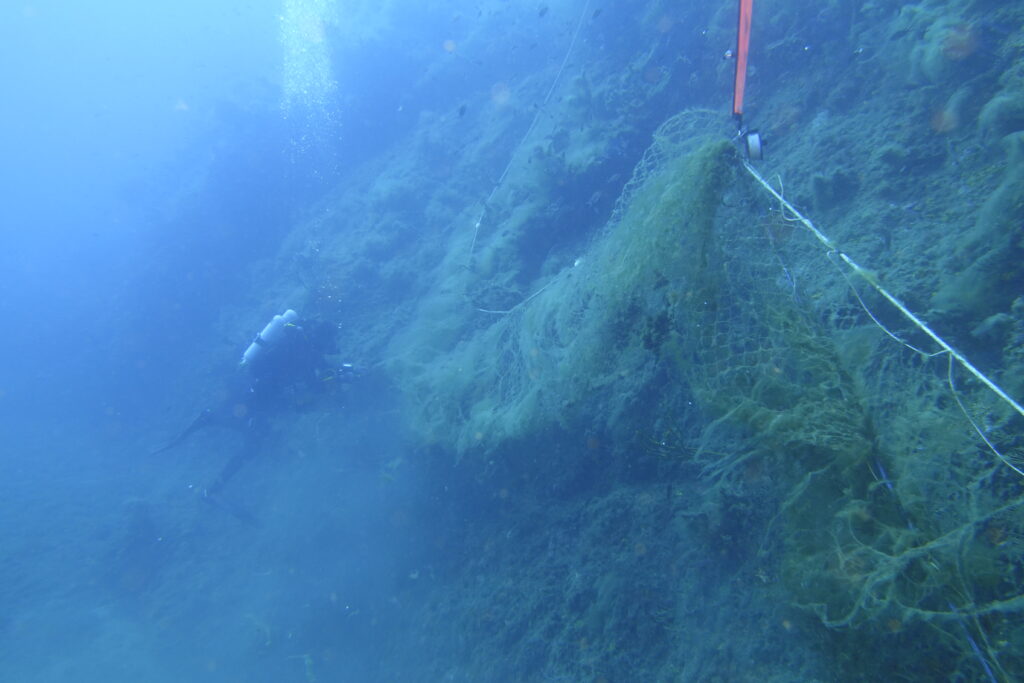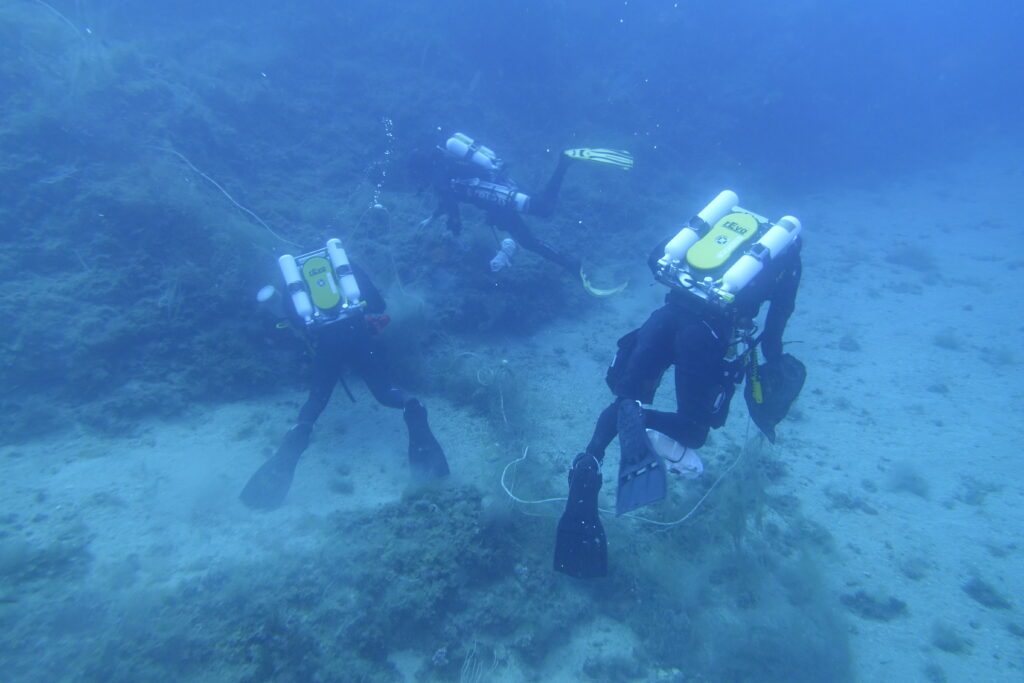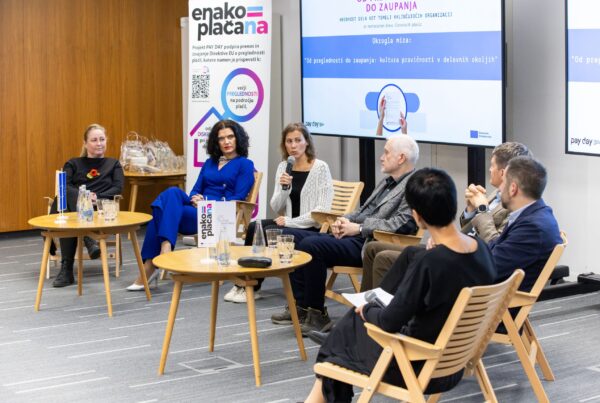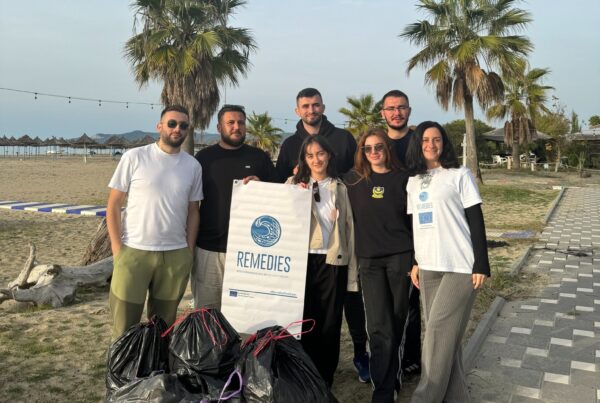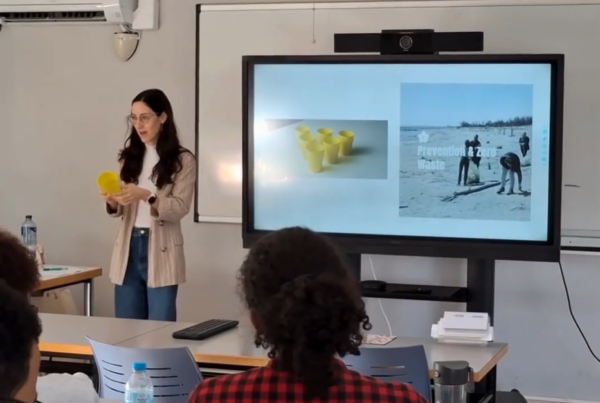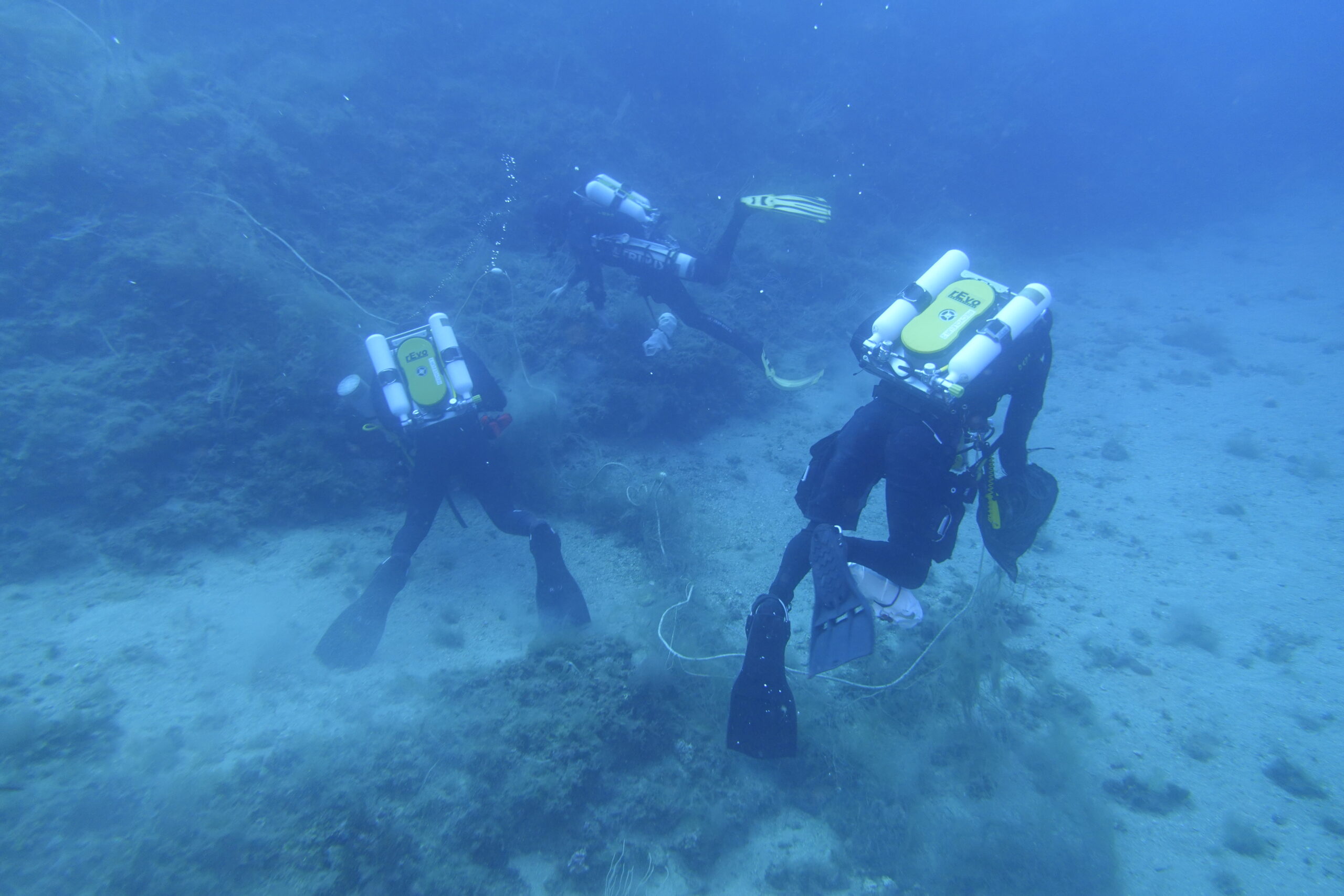
As part of the REMEDIES project, under the Mission “Restore our Ocean and Waters”, which aims to tackle plastic pollution in the Mediterranean, the island of Porquerolles, located off the coast of southern France in the Var region, has been designated as one of the pilot sites. Among the activities carried out on the island, one focused on observing and documenting existing initiatives related to the collection and valorisation of fishing nets, a major source of marine pollution when abandoned at sea. In this context, SMILO, project partner and coordinator for the Porquerolles pilot site, interviewed Palana Environnement, a Marseille-based association specialising in the collection of lost fishing nets and the restoration of marine ecosystems.
Porquerolles: Acting against underwater plastic pollution with Palana Environnement
Founded in 2016 in Marseille by professional diver Pablo Liger, the association Palana Environnement works to preserve and restore marine ecosystems across southern France. Its core mission: to identify, recover, and recycle abandoned fishing nets, which pose a serious threat to Mediterranean marine biodiversity.
Fighting “ghost fishing”
It all began with a simple observation: during dives around Marseille, Pablo and other experienced divers often came across abandoned fishing nets, with no system in place to recover them. These lost fishing gears continue to trap fish and crustaceans for months — a phenomenon known as ghost fishing, before slowly breaking down into microplastics. Palana Environnement operates in close collaboration with local fishers along the Mediterranean coast, from the Côte Bleue and Marseille to the Frioul Islands, and even as far as Porquerolles. Before each removal, the team conducts an environmental impact assessment: about 90% of nets are removed, while others are left in place when they have become too integrated into the environment and their removal would cause more harm than good. A fishing net is most dangerous during its first few months at sea. It continues to trap marine life before becoming covered with algae, sinking to the seabed and damaging gorgonians and other fixed organisms. During the first six months, the by-catch remains significant. After that, its effectiveness gradually declines, and within one to two years, it no longer traps anything. When the net sinks onto a rocky surface, it becomes colonised by calcareous algae and is eventually neutralised. On sandy areas, however, it is not necessarily stabilised and may continue to release microplastics into the marine environment.
Protecting gorgonians – Fragile icons of the Mediterranean
During their recovery operations, Palana Environnement’s divers also take part in the restoration of red, white, and yellow gorgonians — emblematic yet vulnerable species of the Mediterranean seabed. Damaged colonies are carefully transplanted to nearby, suitable habitats, to maximise their survival and contribute to the resilience of coralligenous ecosystems.
Giving fishing nets a second life
Removing nets is good; reusing them is even better! While many retrieved nets are too degraded to be reused, some can still be recycled or transformed.
The association works with:
- Local fishers, to identify materials that can be reused directly within the fishing community;
- Sauvage Méditerranée association (Aix-en-Provence, France), which grinds marine plastics to create eco-designed jewellery and decorative objects made from fishing nets, sea glass, and other marine debris.
They are also exploring collaborations with:
- SAO Textile (Sète, France), the first French initiative to recycle fishing nets into sustainable textile fibres, transforming trawl-type nets into eco-responsible yarns for the textile industry.
An exemplary action in Porquerolles – REMEDIES pilot site
In July 2025, a recreational diver discovered an abandoned fishing net near Porquerolles and alerted the Port-Cros National Parc. Following an impact assessment, the Parc concluded that removal was necessary and called upon Palana Environnement for assistance. A mixed team, four divers from Palana, two from the Parc, and one local fisherman, worked together to free and lift the net to the surface. Too damaged to be recycled, the net was subsequently taken to a waste disposal facility. Nevertheless, this operation prevented further accidental catches and helped protect the gorgonians present on the site.
Conclusion
Recycling and reusing fishing nets remains a major challenge: most nets recovered from the sea are severely degraded after long exposure to salt. However, local recycling initiatives are emerging, aiming to transform what can be recycled into useful and sustainable resources. Although the net recovered off Porquerolles could not be reused, others will be in the future, thanks to the joint efforts of divers, fishers, associations, and local authorities. Together, these actors are working towards a shared goal: to protect Mediterranean marine and coastal ecosystems while developing practical, circular solutions for the sea.
Photo credits: Palana Environnement
